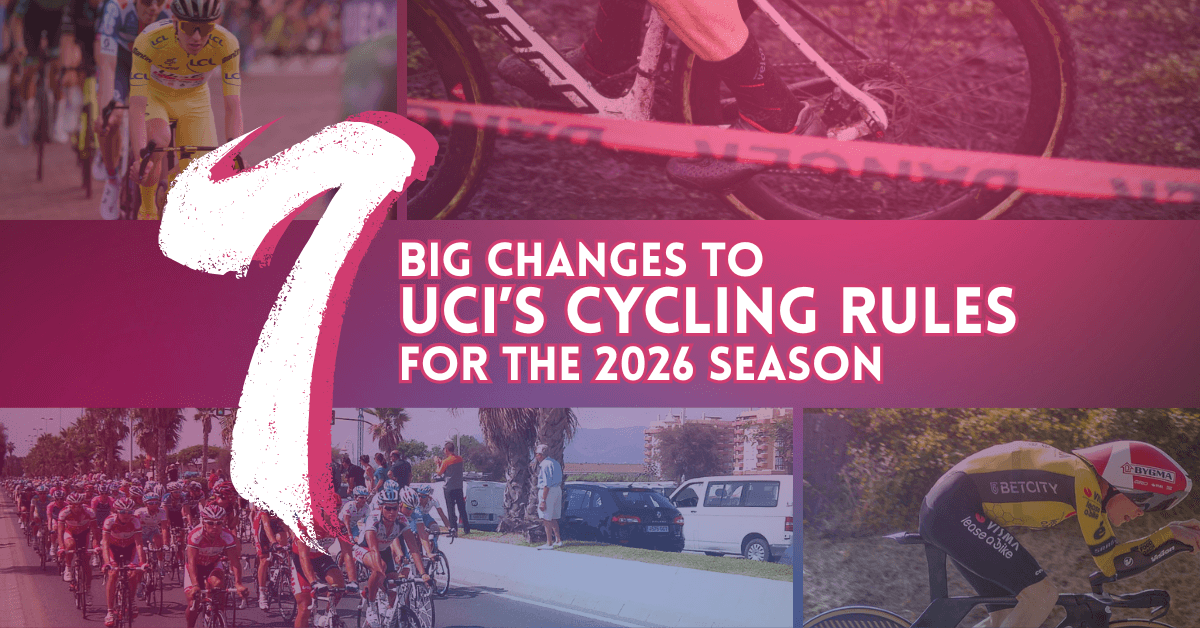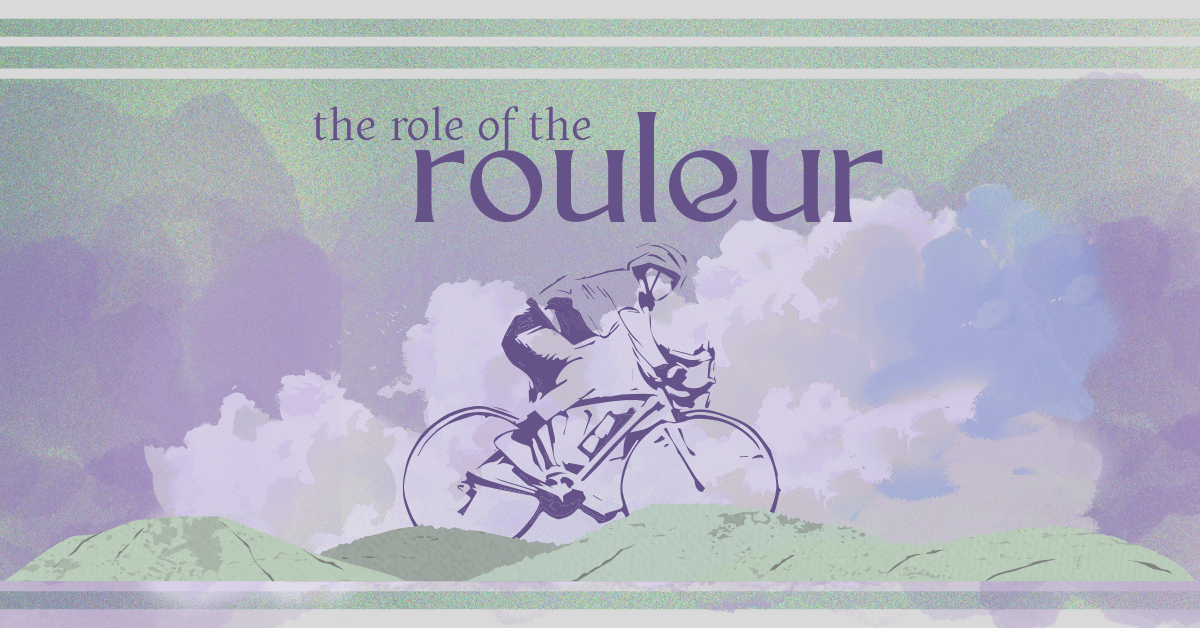Hardcore cycling fans have a love-hate relationship with Netflix’s cycling documentary series, Tour de France: Unchained. While the entertaining and dramatic nature of the series attracts new viewers to the sport, dedicated cycling fans often find themselves unsatisfied. Key moments omitted from the series could offer a more complete and authentic portrayal of the sport they love. This includes an emotional post-race interview with Matej Mohorič, the winner of Stage 19 in the 2023 Tour de France.
Embed from Getty ImagesIn many ways, the interview was a stark departure from the usual victory celebrations. Mohorič spoke honestly about the immense pressure and sacrifices pro cyclists face through their careers. He acknowledged the self-doubt that creeps in even at the highest level, questioning if he truly belonged amongst such talented competitors. His emotional vulnerability resonated with Tour de France superfans. It offered a rare glimpse into the mental and physical toll cycling takes on even the most decorated athletes. Understandably, the Netflix documentary’s choice to exclude the majority of this interview from the series raised eyebrows. Why did Unchained skip what made this Tour-defining moment so special?
Last year, a stage victory for Matej Mohorič meant more than just a podium.
During the 2023 Tour de France, Mohorič secured a photo-finish victory on Stage 19. Following a late breakaway attempt, Mohorič found himself in a select group battling for the win. After a tactical game with his fellow escapees Ben O’Conner and Kasper Asgreen, he positioned himself perfectly for the final sprint. As Asgreen’s attack unfolded in the closing meters, Mohorič chose the right moment to claim a hard-fought stage victory. His photo finish with Asgreen, who won Stage 18 the day before, not only added to Mohorič’s personal win tally, but also secured a third stage for Team Bahrain Victorious.
For the team, the win held a bigger significance. Cycling’s biggest competition started just weeks after the tragic death of team member Gino Mäder, who passed away in a racing accident. His teammates started the Tour de France devastated but determined to honor Mäder’s memory. Mohorič’s emotional post-race interview made several reference to Gino and wanting to win in honor of him. The stage victory wasn’t just another win for the team — it was a powerful symbol of resilience and tribute to a teammate.
Embed from Getty ImagesStage wins by other Bahrain riders, such as Pello Bilbao and Wout Poels, also became poignant testaments to the emotional journey of their team.
Bilbao openly honored the memory of Mäder after his win, which was discussed in Tour de France: Unchained. Of course, many wins in cycling aren’t just personal triumphs for the rider who crosses the line first. These wins in particular became more meaningful symbols of resilience and collective effort by the team in the wake of tragedy. Their stage victories during the Tour honored Mäder’s fearless spirit on and off the bike, putting his memory front and center on cycling’s biggest stage.
Read more: Pello Bilbao pays tribute to Gino Mäder after Tour de France stage 10 win (The Guardian)
Why is Mohorič’s interview so special?
Mohorič’s words after his win ripped away some of the glossy veneer of the typical post-race interview. Cyclists undergo extensive media training, and many are relatively cagey about giving detailed answers about their feelings and strategies. But Mohorič spoke candidly and from the heart about many topics: his approach to the stage, his battles with self-doubt, and his questions about whether his talent was enough to compete with the sport’s elite. He took time to thank the staff supporting his team, even the mechanics behind the scenes.
His raw honesty resonated with viewers. Many likely related to his feelings of “imposter syndrome,” even if their own challenges aren’t as high-stakes as a Grand Tour. Mohorič’s vulnerability challenged the perception of professional cyclists as invincible machines, and instead portrayed them as complex individuals grappling with the pressures of performing at the pinnacle of the sport. At the same time, he showed grace and gratefulness to those who support him and the opportunities he’s been given.
Cycling’s magic has always lived in its human stories.
Narratives inspire and connect us to the athletes. From the teamwork of domestiques, to the battles between superstars, to the victories of lesser-known riders like Mohorič — we all relate to these stories in our own ways. Cycling is not an individual sport, and it’s more than just a race. It’s a testament to the human spirit in strength, vulnerability, and unwavering pursuit of victory. For this reason, Mohorič’s interview exemplified all parts of cycling’s humanity.
Read more: Matej Mohoric: ‘I smashed myself’ to take Tour de France win for Mäder (CyclingNews)
Who is Matej Mohorič?
Mohorič started his career as a junior and U23 standout, becoming the first rider to win both world titles consecutively in 2012 and 2013. At this point in his career, he excels most in hilly classics and stages with challenging terrain. His aggressive riding style and technical prowess have earned him victories at all three Grand Tours. He also pioneered the daredevilish “pedaling supertuck,” which has since been banned in UCI competition.
Mohorič reached a new pinnacle in 2022 with a prestigious win at the monument race Milan-San Remo. The win showcased both his tactical nous and descending prowess. After a daring attack on the iconic Poggio, he held strong to cross the finish line solo. His use of a dropper post in the race highlights his commitment to pushing technical boundaries in the sport. In the coming seasons, he will likely continue to innovate his way into more stage wins and podium finishes.
Read more: ‘Once in a lifetime’: Matej Mohorič on his stunning Milan-San Remo victory in 2022 (Cycling Weekly)
Mohorič is also the reigning UCI Gravel World Champion. Gravel racing is still a relatively niche discipline compared to road cycling. However, it is becoming more popular over time, attracting pros looking for a new challenge. The adventurous routes and challenging mix of terrain especially appeal to specialist riders like Mohorič. This year’s Tour de France throws a curveball with the inclusion of a gravel stage, a first for the race. Along with cyclocross riders like Wout van Aert and Matheiu van der Poel, Mohorič is considered a top favorite for this stage.
Unchained‘s omission of Mohorič’s interview is symptomatic of a larger problem.
Embed from Getty ImagesOkay, so Unchained wasn’t entirely silent on Mohorič’s interview. However, the use of jump cuts removed much of the the raw emotion and reflection. The snippets were also interspersed with clips of Mohorič’s rival Kasper Asgreen reacting to the loss, changing the tone. This left viewers with a surface-level awareness of the interview lacking most of what made it special. Unchained also failed to link it to the Mäder narrative. In many ways, omitting Mohorič’s stage win and interview altogether would have made more sense. Why did Netflix do it this way?
While Tour de France: Unchained brought cycling to a much wider audience, it often seems to prioritize manufactured drama over the sport’s existing storylines. Breathtaking victories, inspiring comebacks, and the intense mental and physical battles riders face are overshadowed by team rivalry or controversy. This approach grab attentions, but it comes at the expense of the genuine stories that already exist within the world of professional cycling.
The Mohorič’s interview isn’t the first time Unchained skipped a Tour-defining moment. In one of the final stages of the 2022 Tour de France, race leader Jonas Vingegaard waited for rival Tadej Pogačar to recover after a crash on a descent. After allowing him to catch up, the two shook hands in a gesture of respect. This act of sportsmanship added another layer of nuance to their already narratively-rich battle for the yellow jersey. But when the first season of Unchained was released, this moment was nowhere to be found. Netflix didn’t secure interview rights with Pogačar’s team, UAE Team Emirates, for the first season, which may be a logistical explanation for this omission.
Other sports also get “the Netflix treatment.”
Drive to Survive, which is produced by the same group behind Unchained, draws a new generation of fans to the world of Formula 1. The series showcases the competition and personalities within the F1 paddock. However, behind the adrenaline-pumping visuals and narratives lies concern about the show’s tendency to manufacture drama for entertainment purposes. The manipulation often takes the form of exaggerating rivalries between drivers and teams. Soundbites might be taken out of context, or edited to create a sense of animosity that doesn’t exist in reality. Unchained directors use many of these same tactics, with viewers noticing racing or crash clips from different stages — or different races altogether — spliced in for dramatic effect.
Read more: Formula 1 drivers are getting sick of the selective editing on Netflix’s Drive To Survive (AV Club)
Drive to Survive’s focus on manufactured drama overshadows the genuine narratives that already exist in Formula 1. Just like with cycling, technological advancements and the human drama of overcoming adversity define the sport. By neglecting these narratives, Drive to Survive diminishes its sport’s authenticity, and it looks as though Unchained will continue to go much the same way.
But did Unchained just mess up with Mohorič’s interview, or is it something more?
There’s no doubt that Unchained tugged at viewers’ heartstrings with its telling of Team Bahrain Victorious’ emotional victories. However, the show’s splicing-out of the most authentic aspects of Mohorič’s interview exposes a broader problem with storytelling. Unchained excels at surface-level emotional narratives and may omit some Tour storylines for clarity or brevity. But this change specifically feels like a conscious decision not to go deeper and be more authentic. Long-time cycling fans crave a deeper dive into the cycling psyche, but Unchained actively decided not to take that route through selective editing.
Could future seasons be geared more towards authenticity?
It’s unlikely Netflix will alter their approach to Unchained. Their main goal is to make a series that’s captivating and easily digestible for casual viewers. Hardcore fans might want that exploration of the sport’s psychological and emotional complexities, but prioritizing accessibility is Netflix’s key to retaining an audience. The average casual viewer is not likely to digest all the complexities of Mohorič’s interview. That is the reality of sports documentary filmmaking and media literacy. However, Netflix’s failure to capture that special kernel of authenticity at the heart of the interview by reducing it to soundbites and platitudes is a separate problem. Sadly, it is one that is not likely to be amended anytime soon.
Read more: Q&A: The Challenge of Making ‘Tour de France: Unchained’ (Outside Magazine)
Read more: Interested in going beyond Unchained? 7 Cycling Documentaries to Tune Up Before the 2024 Tour de France
Where can you see Mohorič’s full interview?
Curious about the full interview? You can see the unedited version in the YouTube embed below. If you haven’t seen it before, watch it yourself for a more complete picture of the story behind the stage win.
What did YOU think of Tour de France: Unchained? Do you enjoy the series overall? Let us know what you think in the comments below! ★










Leave a Reply